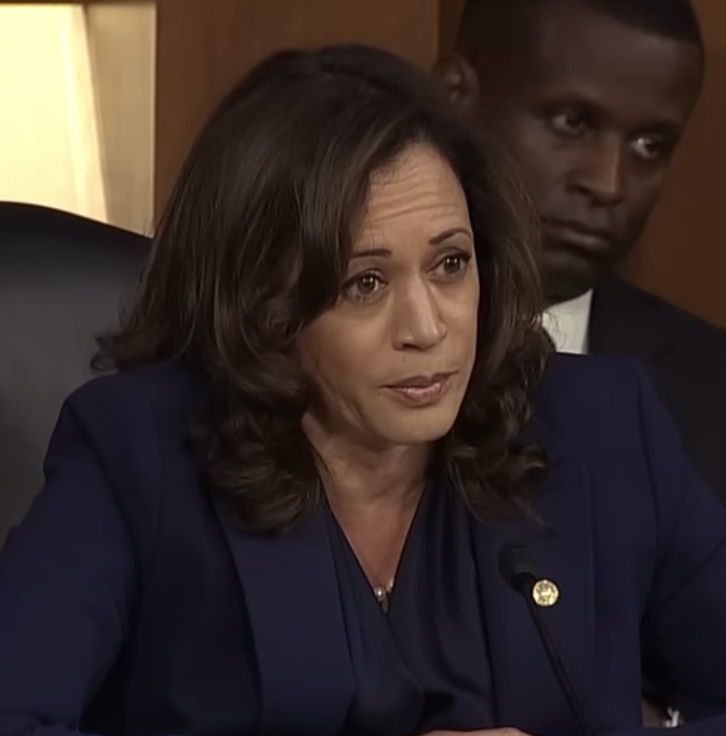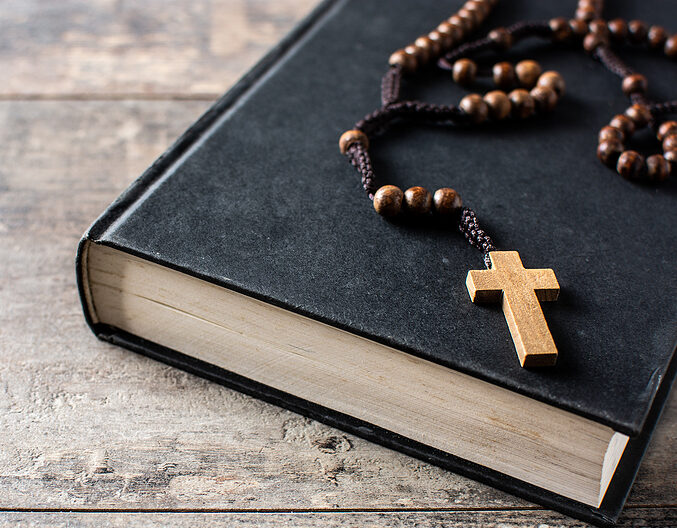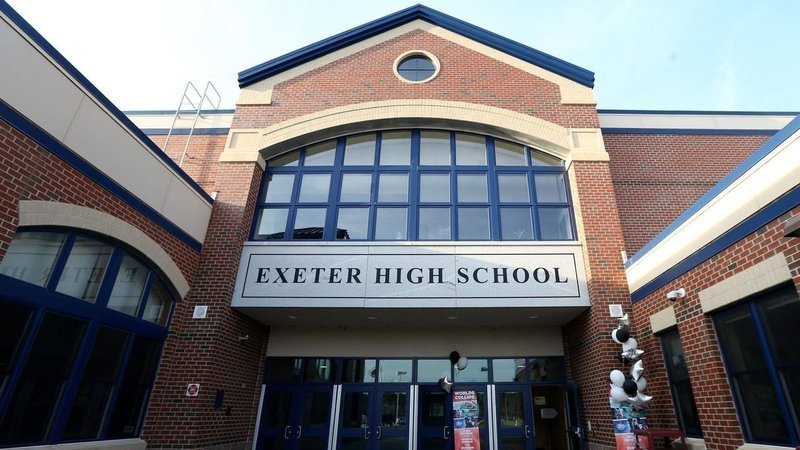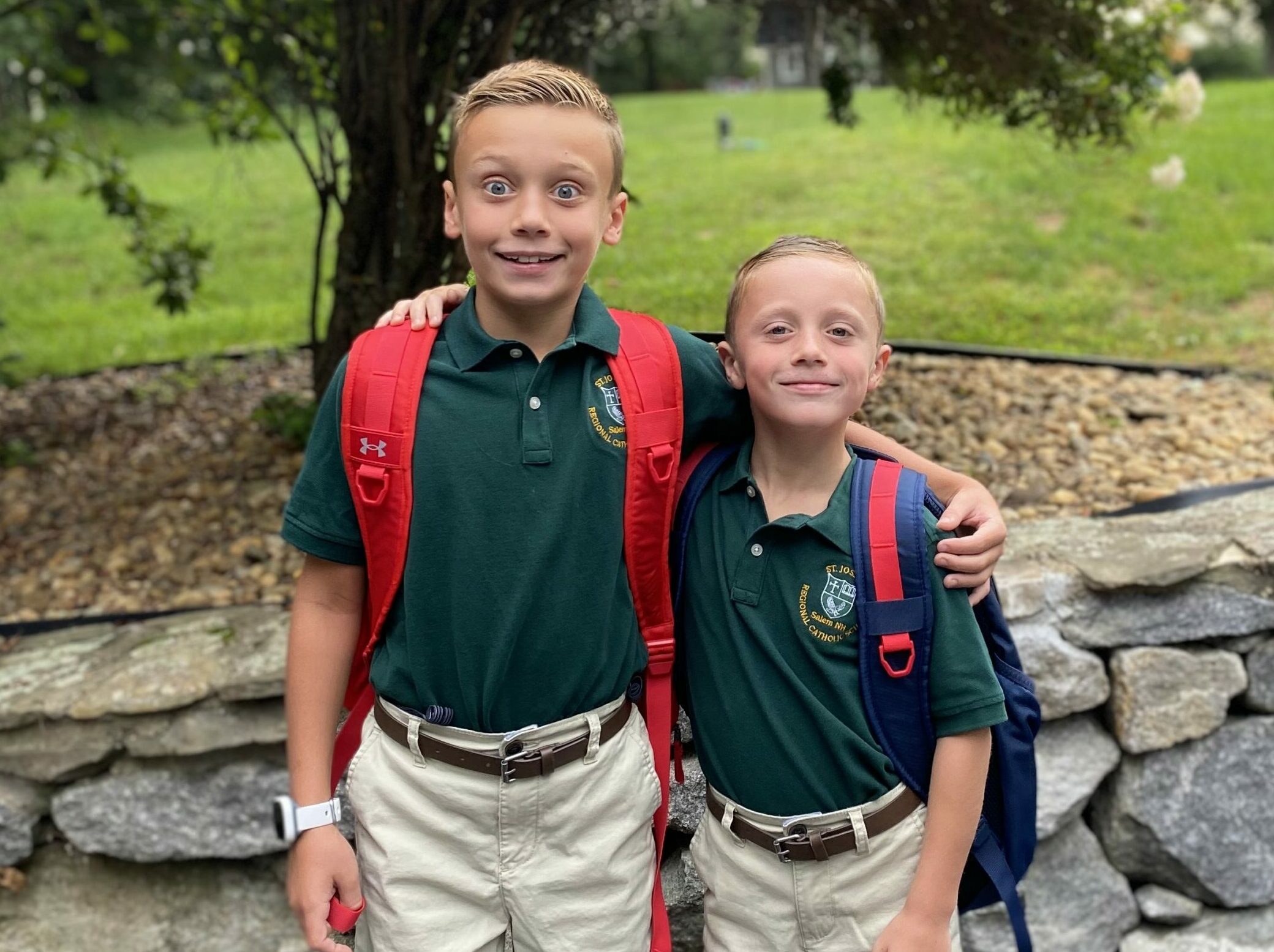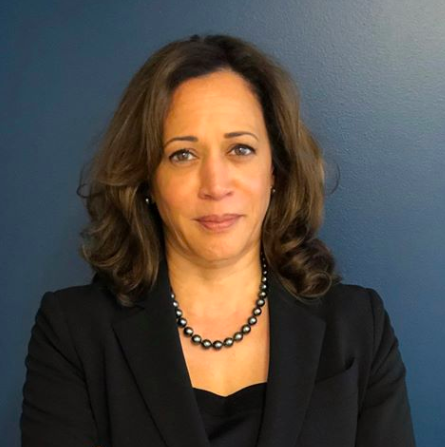Hundreds Gather at Public Hearing on CMC-HCA Hospital Deal
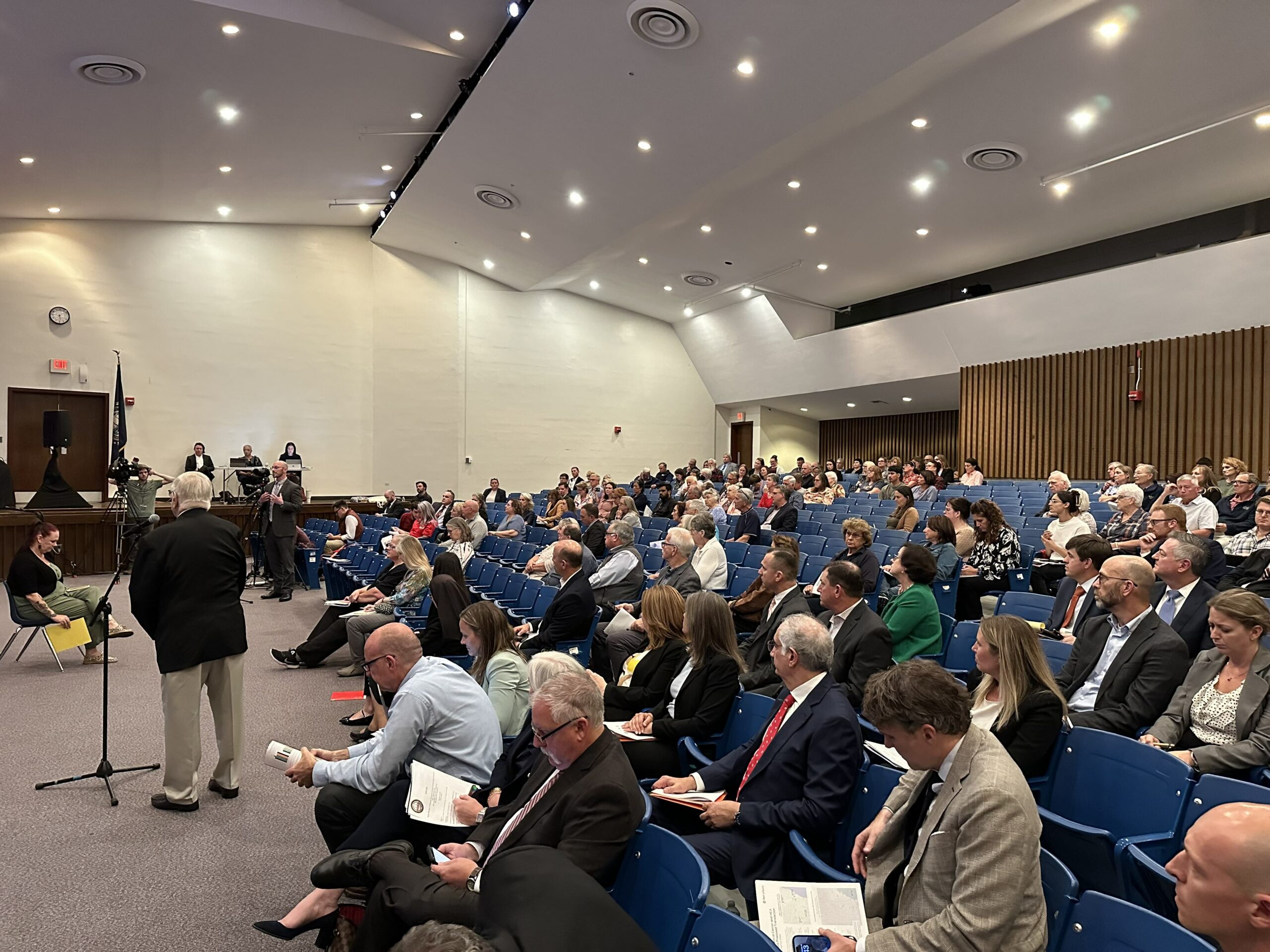
At Wedensday’s public hearing on the proposed sale of Catholic Medical Center to HCA Healthcare, speaker after speaker made one fact clear: CMC needs help, and it can’t continue serving the community without it.
“CMC is in a very weak financial position,” said independent consultant Tyler Brannen. He was brought in by the New Hampshire Attorney General’s Office to analyze the proposed deal.
“It’s been operating at a loss for years. They can’t continue to operate at these losses indefinitely.”
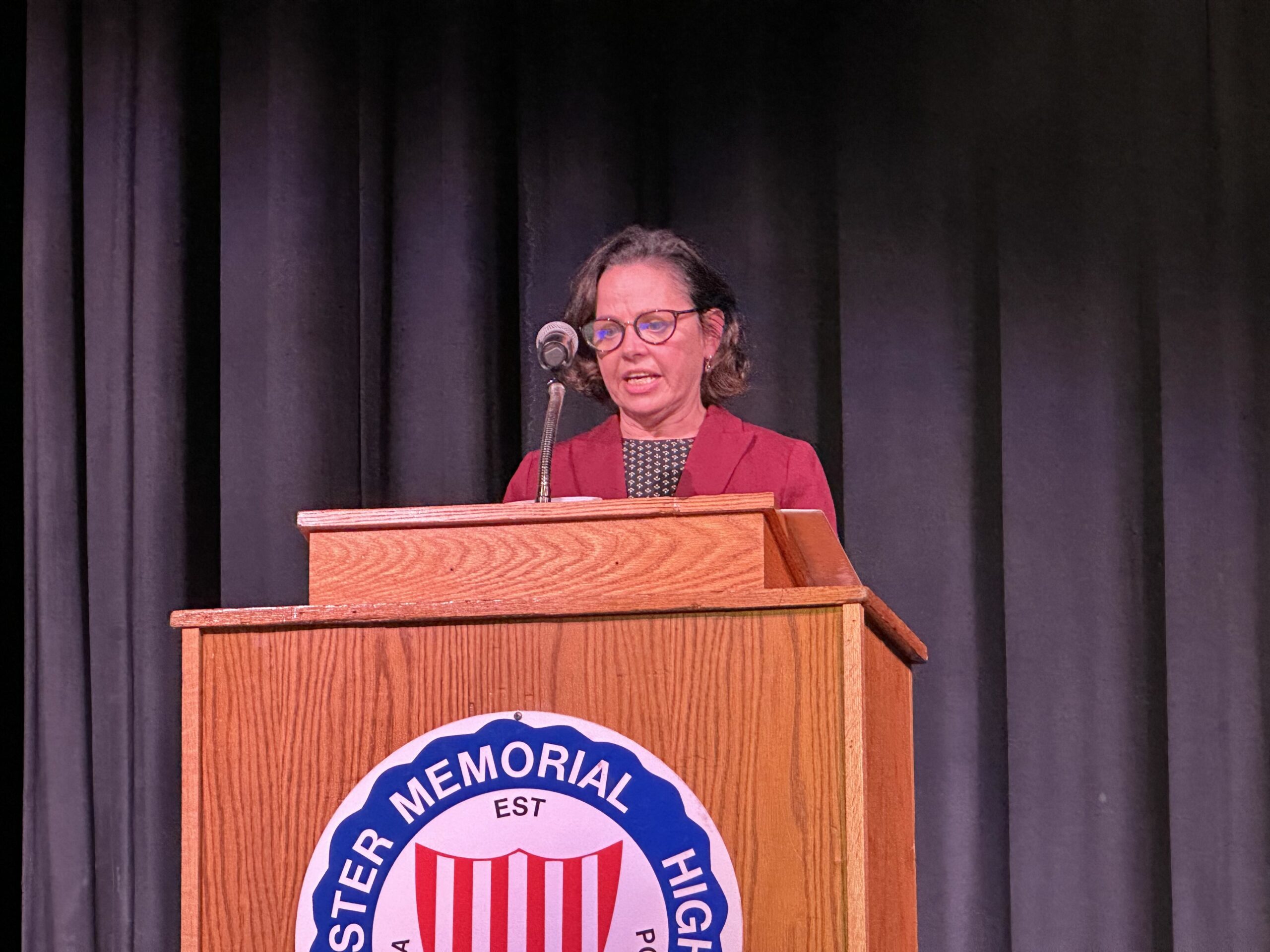
Mary Ann Dempsey, Director of Public Trusts at the New Hampshire Department of Justice.
The state’s Director of Charitable Trusts, Mary Ann Dempsey, opened the public hearing and represented the state Department of Justice.
“Our review of the transaction will take into consideration expert analysis such Mr. Brannen, as well as input from the two parties, from community stakeholders, and from the public,” Dempsey pledged before an audience of some 300 people at Manchester Memorial High School.
One attendee was retiring state Sen. Lou D’Allesandro (D-Manchester). He told NHJournal moving ahead with the sale is the right thing to do.
“We need CMC, we need a vibrant CMC. We need a financially secure CMC. This is one way to make it happen. And I think that’s very, very significant,” D’Allesandro said. “All the services that have been provided must continue to be provided, there can’t be any deviation, we need that commitment.
“But this is a deal that’s got to happen.”
A non-profit controlled by the Roman Catholic Diocese of Manchester, CMC loses millions of dollars a year operating one of Manchester’s only two hospitals. CMC leaders have been looking for a fix for years without success, according to Tim Riley, chair of CMC’s board of trustees. A proposed merger with the Dartmouth-Hitchcock Health system fell apart in 2022 after years of work on the deal.
“That left CMC in a vulnerable position,” Riley said.
Tennessee-based HCA, a for-profit company that operates 180 hospitals throughout the U.S., including three in New Hampshire, says it’s ready to step in. Dr. William Lunn, president of HCA’s Capital Division, said the deal to join would end up with a stronger CMC, buoyed by investment and resources from the parent company.
Several speakers noted the proceeds from the sale would go to a charitable foundation controlled by the Diocese to further CMC’s charitable goals. Riley and Lunn said HCA will also respect CMC’s Catholic identity, and the hospital will still adhere to Catholic ethical standards for medical care.
“First and foremost, we required a partner that would maintain and embrace our Catholic identity,” Riley said. “This means following the ethical and religious directives for Catholic healthcare. It was important that our Catholic identity was not suddenly tolerated but fully embraced.
“HCA is a partner who is committed to our Catholic legacy and identity,” Riley added.
Critics of HCA say they fear the company will put its profit margins over public service. They point to the company’s takeover of Frisbie Memorial Hospital, where HCA shut down the labor and delivery department after promising to keep it open.
And while the sale makes sense out of necessity, Brannen said there are likely going to be cost increases for patients and a possible loss of local control. Added to those concerns is the strength of the language in the contract when it comes to charitable care.
HCA is also the target of a lawsuit brought by North Carolina Attorney General Josh Stein accusing the company of failing to provide the care it promised when it bought the Mission Health System. Lunn said many problems at the Mission hospital have been corrected, and noted that Stein filed the lawsuit while he was seeking election to become North Carolina’s next governor.
Manchester Mayor Jay Ruais spoke at the public meeting, praising HCA’s commitment to investing in the west
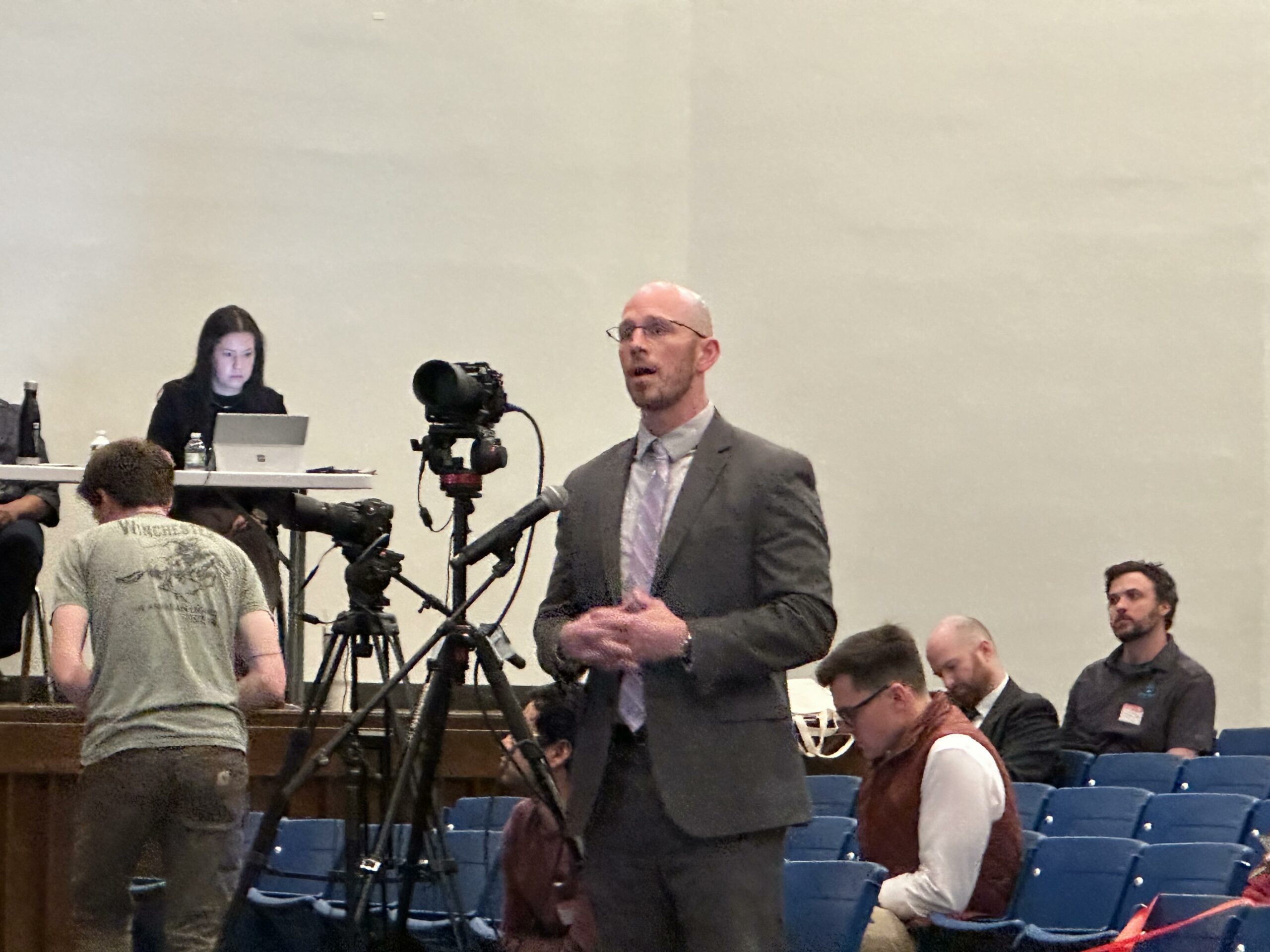
Manchester Mayor Jay Ruais.
side of his city beyond just the hospital itself.
“I’m thrilled to hear about the investment that you’re making, not only to the infrastructure in the hospital, but the infrastructure that you’re looking to create within our community as well. And I know that you would want the city to be a partner in that process,” Ruais said.
Alex Walker, CMC’s CEO, announced Wednesday that Dartmouth-Hitchcock will no longer provide labor and delivery at CMC. He also addressed concerns that the deal might push the hospital out of the business.
“We deliver about 1,000 babies a year. We have been delivering babies at Catholic Medical Center for the last 50 years. We’ve been delivering babies in the city of Manchester for the last 130 years,” Walker said. “So you need to hear from me on behalf of our Board of Trustees and the bishop: Labor and delivery services are a vital part of Catholic Medical Center. It is, in a lot of ways, our essence and what we’re all about.”
The public hearing is part of the New Hampshire Attorney General’s Office review process for the proposed sale. Mary Ann Dempsey, Director of Charitable Trusts, will continue to accept public comments about the proposed sale until Nov. 1. Those comments can be emailed to [email protected].

